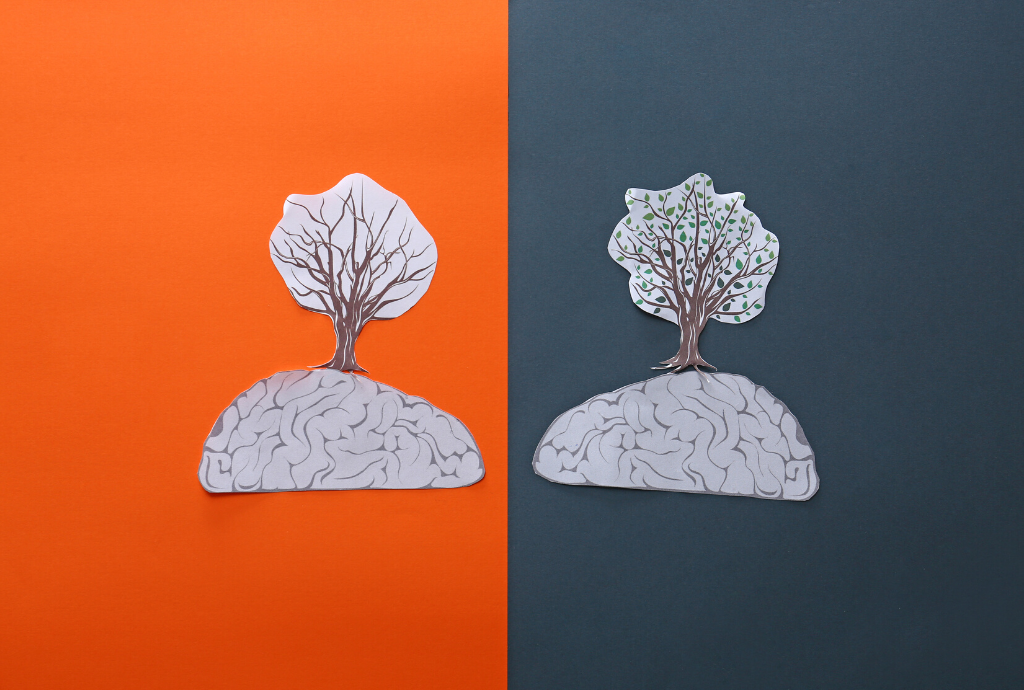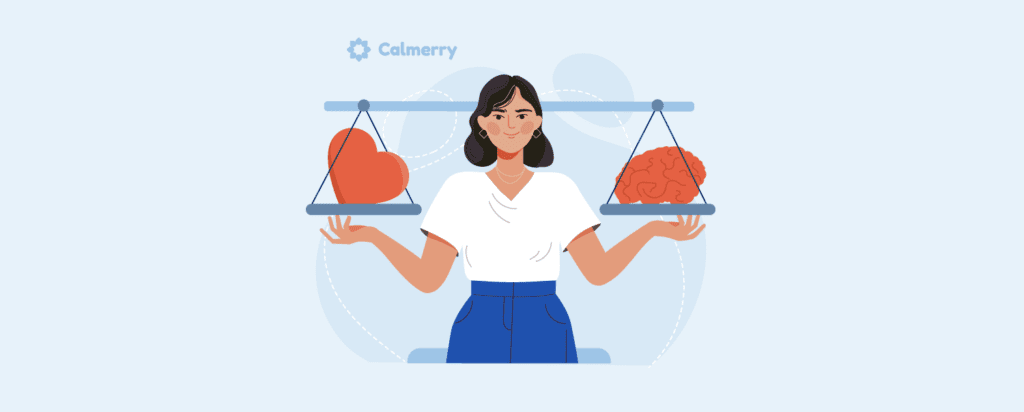Are You Suppressing Your Emotions or in Control of Them?
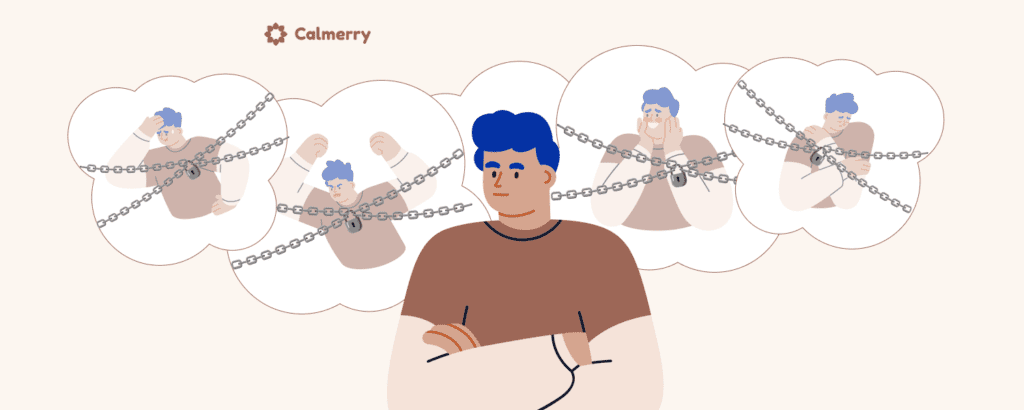
In this article
Let’s say you argued with your partner in the morning, 30 minutes before your work video meeting on Zoom. Having a reputation to uphold and wanting to look “professional,” you try to stay positive and pretend to be focused on the videoconference.
Your furniture delivery is delayed for 3 hours. Customer support says the order will be delivered tomorrow. You get angry. You had to take off work today. But instead of complaining, you just “swallow” the negative feelings and hang up.
We all experience a broad spectrum of emotions daily and are challenged by the events requiring us to take control of our emotions. We try to keep them in check, making conscious or unconscious choices about our feelings.
These choices directly impact our:
- Thoughts
- Actions
- Well-being
- Relationships with others and ourselves
The difference is in how we manage emotions and how we feel in the end.
But how to recognize this difference? Is emotional suppression an effective self-regulating strategy? Find out the answers, and more, below.
Why are emotions important?
Emotions are present in every aspect of our lives, and they’re very important for our well-being. Why?
- Whether we’re happy or sad, angry or content, emotions are biological feedback, responses to what’s happening in the world
- They provide cues as to how we should act and behave in life
- They give information about what events, things, or phenomena mean to us and what they may bring to our lives
- Our emotions guide us to behave in a way that can help us cope with challenging situations
- And it’s safe to say that emotions are fuel for survival
Human emotions are the compass guiding our thoughts and behaviors. But they can be confusing.
Each day we’re hit with so many emotions – both positive and negative – that sometimes it may be hard to tell how we really feel. And they can be so overwhelming that it may be impossible to maintain daily routines.
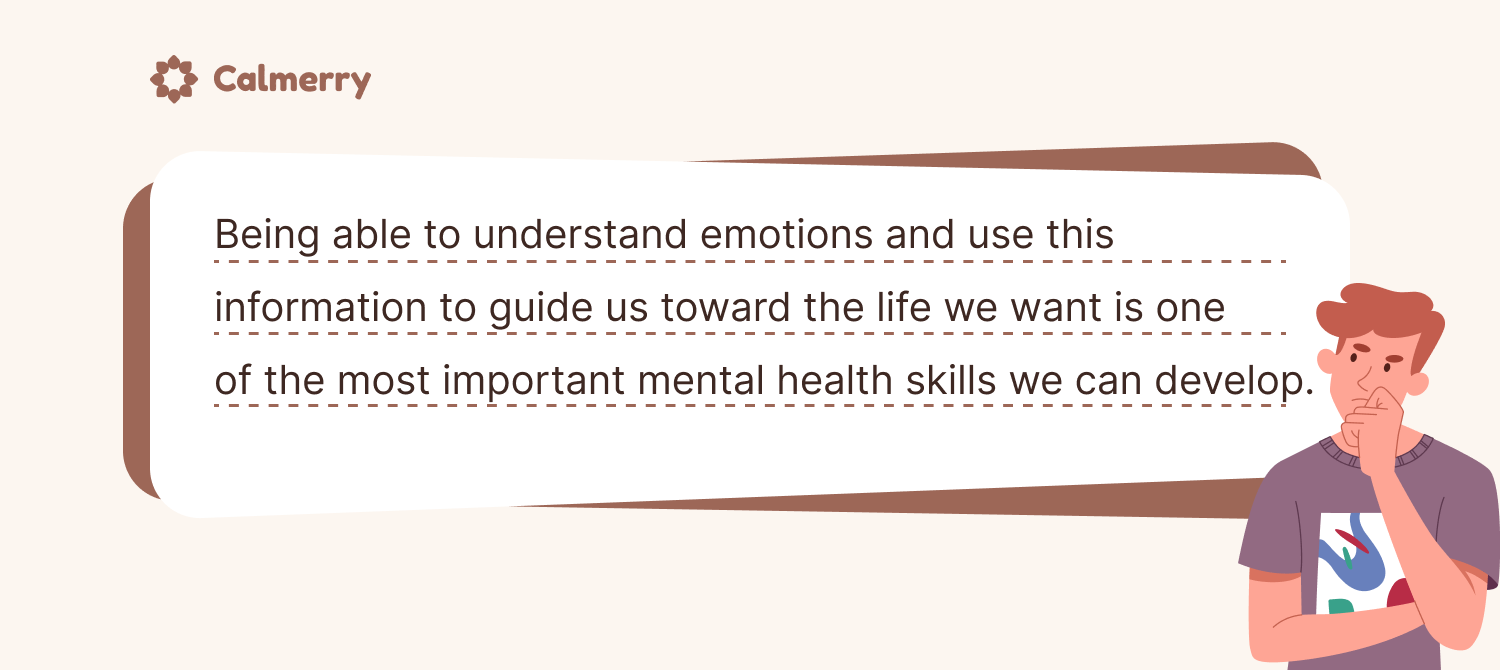
To use this compass properly and let it help us navigate our lives wisely, it’s critical to understand emotions and know how to regulate them. And to make use of these responses, there are tools like emotional self-awareness and regulation. These are some of the components of Emotional Intelligence (EQ).
Being able to understand emotions and use this information to guide us toward the life we want is one of the most important mental health skills we can develop.
How we regulate our emotions
Emotional control or emotional regulation is the ability to manage emotions. It’s a set of tools we use to consciously or unconsciously choose:
- When to experience emotions
- How to react to them
- How intense they should be
Controlling is not a refusal to feel. And good emotional regulation skills are linked to improved well-being. However, it doesn’t happen by magic, although we wish it could. Emotional regulation is a complex process that can be achieved through several strategies.
For example, if you feel angry or upset because of an argument with your partner right before a work meeting, you might try to distract yourself or suppress your feelings to adjust and be present in the work situation. Both are examples of emotional regulation or control.
And if you choose to take a deep breath, finish the phone call, and not let out your anger and disappointment over a late furniture delivery and poor customer service, this is also an example of emotional regulation.
The difference is in the strategies used and the outcomes for your well-being. In this context, it’s possible to categorize them into adaptive and maladaptive.
Adaptive emotional regulation strategies:
- Acceptance – “My problem is real.”
- Emotional processing – “I’ll try to explore and understand my emotional experience.”
- Problem-solving – “I’ll try to figure out what I can do about this.”
- Distraction – “I’ll switch my focus to something else.”
- Conflict resolution – “I’ll have to talk with my partner; we should resolve our morning conflict.”
- Reevaluation – “It’s actually not as important as I thought.”
- Positive appraisal – “OK, I’ll take this challenge!”
- Social support – “I need someone to talk with.”
- Emotional expression – “I’ll let myself express what I feel, verbally or nonverbally.”
- Cognitive reappraisal – “I’ll look at the big picture and reinterpret the meaning of the event.”
- Self-soothing – “I’ll give myself a pat on the back and prioritize self-care.”
- Humor – “There’s something funny in this situation!”
Maladaptive emotional regulation strategies:
- Self- or other-blame – “It’s all because of me (you)!”
- Withdrawal – “I don’t want to see anyone.”
- Rumination – “I can’t get it out of my head.”
- Suppression – “I’ll restrain my emotions and keep them inside.”
- Repression – “I’ll unconsciously avoid my emotions.”
- Denial – “The problem doesn’t exist, doesn’t exist…”
- Self-devaluation – “It’s all my fault, and I deserve this. I can’t do better.”
- Worry – “I’ll just think about possible negative outcomes.”
- Catastrophizing – “This is terrible!”
- Substance misuse
- Self-harm
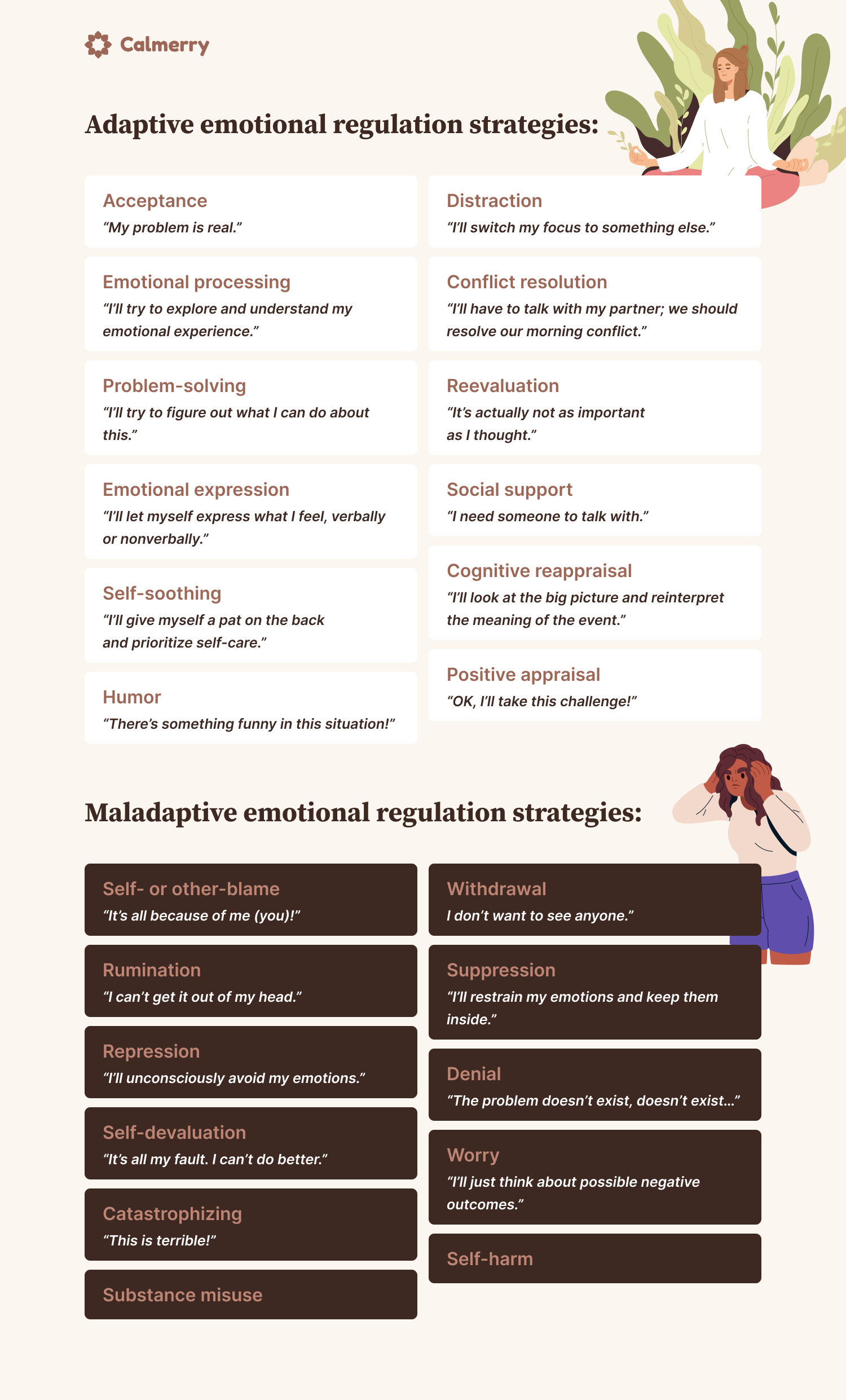
However, it’s important to note that these strategies are unique for every person, as well as the emotions we experience. Some of them are not the best ways to deal with an emergency. And in some situations, adaptive strategies can be maladaptive and vice versa.
What is emotional suppression?
Suppressing your emotions means purposely and consciously not acknowledging, accepting, and processing them.
Emotional suppression can happen when people don’t have adequate, healthy coping mechanisms for their feelings. They learn to deny their true emotions and believe they’ll simply go away if they continue pushing them down.
“The reason for and severity of suppression of emotions varies from person to person,” – says Diamond Thaxton, a Licensed Mental Health Counselor at Calmerry. – “It’s understandable that people want to suppress their emotions because it can be taxing, time-consuming, and exhausting to process challenging emotions.”
Often, emotional suppression as a mechanism, as well as repression, can be learned in childhood.
Neglect of negative childhood emotional experiences and phrases like, “You get what you get, so stop crying” or “Your emotions are a sign of weakness” discourage children from exploring, acknowledging, and expressing their emotions and feelings in the long term.
Emotional suppression is often insidious and linked to denial. Once we have experienced a wave of negative emotions, we consciously force ourselves not to think about them for the rest of the day.
This can be harmful, preventing us from experiencing our lives to the fullest.
Emotional repression vs. suppression
Dealing with intense emotions is often challenging. And we all use different defense mechanisms to protect ourselves from unpleasant experiences.
Emotional repression and suppression are examples of coping styles. While they may appear similar on the surface, they actually work differently:
- Emotional repression involves the unconscious blocking of uncomfortable feelings, thoughts, and impulses away.
- Suppression, however, requires conscious effort and involves actively trying to keep certain emotions and thoughts outside of our awareness.
Is emotional suppression healthy? Here’s what the therapist says
“Suppressing emotions is a coping skill, but not the most effective one. As suppressed emotions will always be expressed in another way that isn’t healthy. It can be expressed through perfectionism, overworking, abusing substances, or engaging in other high-risk behaviors.
Suppressed emotions often lead to debilitating mental health issues like major depression and general anxiety disorder.” – shares Diamond Thaxton.
In the short run, suppressing uncomfortable emotions may be an adaptive strategy of emotional regulation to adjust to a situation.
For example, in the workplace, you may be suppressing your true emotions to look “professional.” Or, you suppress your anger to keep the tone of the conversation neutral or to keep someone’s day positive.
Diamond agrees that emotional suppression can be beneficial for the short term, but there’s one thing: “Suppression of emotions is more so a temporary coping skill, because you must get through the day and attend to urgent matters and may not have the mental bandwidth to deal with the challenging emotions at the time.
However, at some point, it’s imperative that you validate your intense emotions and process them.”
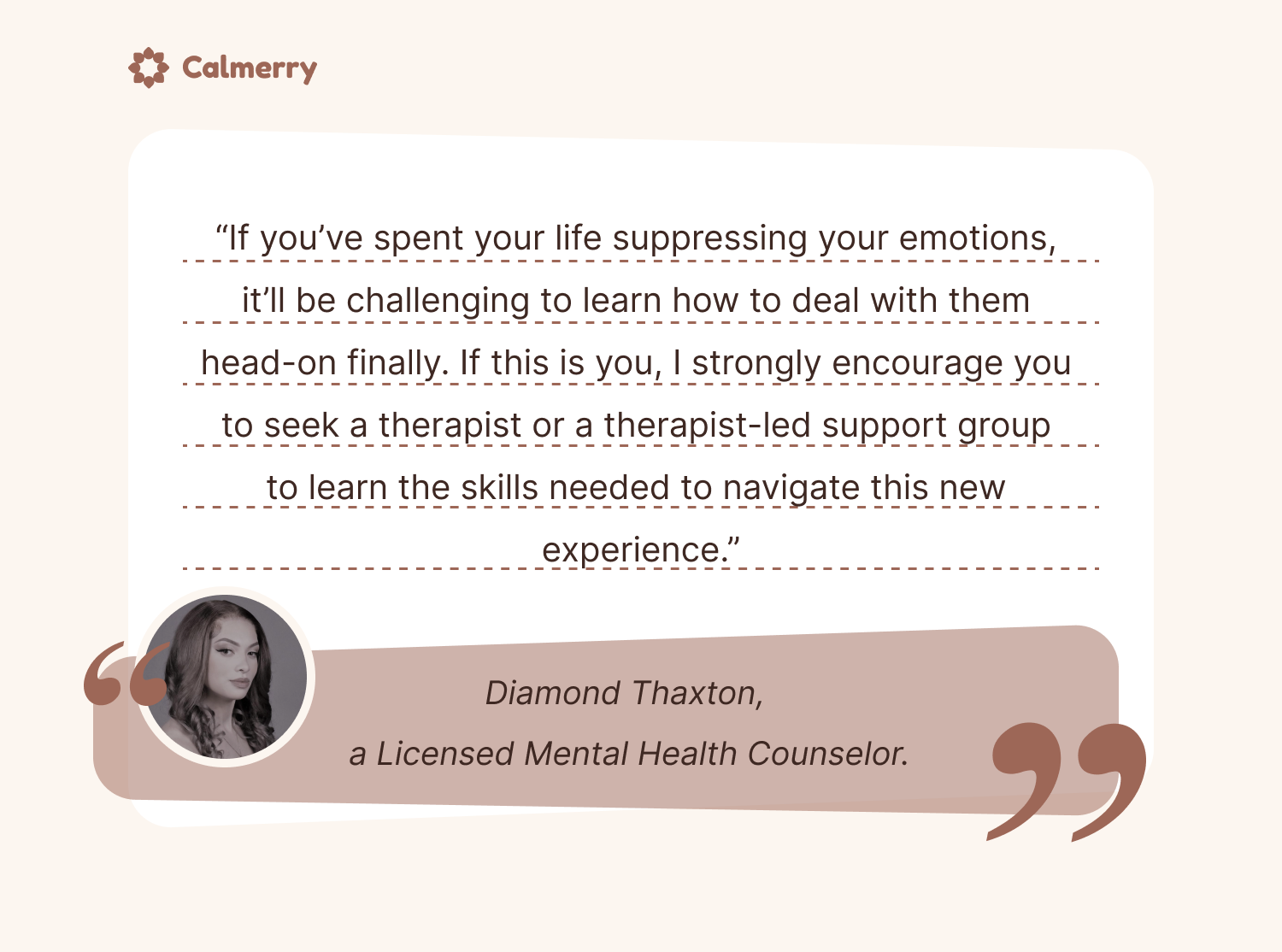
So, you can suppress negative emotions after an argument with your partner before a work meeting. But it’s necessary to address your emotions later, by turning to the situation, talking with your partner, and finding ways to resolve the conflict.
Also, you can talk to a mental health professional to process your emotions and learn healthy coping strategies.
What are the negative effects of emotional suppression?
First, emotional suppression has long-term negative effects on our physical and mental well-being. These include:
- Disrupted sleep
- Increased risk of heart disease
- High blood pressure
- Chronic pain
- Stress
- Depression
- Increased risk of substance use disorders and eating disorders
Second, emotional suppression lets us leave our problems unaddressed. Often, it may seem an easy choice. But when we constantly suppress our emotions, we can end up feeling stuck. Instead of working on resolving the issues, we may blame ourselves, ignore our emotions, and sink into shame, negative self-talk, and self-judgment.
When you suppress your emotions and feelings, either because you’re trying to control them or worry that others will judge you for them, you can’t be in charge of them. Rather, they seem to control you, causing rumination and bringing more emotional pain.
“Believe it or not, it’s also mentally draining to suppress your emotions continuously,” – says Diamond. – “Ever wonder why you are tired even when fully rested? Constant suppression of emotions may be to blame.
If you’ve spent your life suppressing your emotions, it’ll be challenging to learn how to deal with them head-on finally. If this is you, I strongly encourage you to seek a therapist or a therapist-led support group to learn the skills needed to navigate this new experience.”
How to regulate emotions healthily
Healthy emotional regulation is the core of emotional resilience. This requires developing some skills and investing the effort.
Being in control of your emotions means you can healthily deal with them: recognize, understand, and use them to your advantage. And you can respond to your surroundings with awareness and balance.
Emotional regulation is about your relationships with yourself and the outer world. It’s a powerful skill that can help you:
- Lead a more self-aware life
- Get along with others more easily
- Deal with problems more effectively
This takes care and practice but can be learned and nourished with some strategies:
- Pay attention to how emotions impact your daily life
- Identify what you feel and name your emotions
- Recognize triggers
- Accept all of your emotions and feelings
- Prepare an action plan
- Practice journaling
- Express yourself
- Prioritize self-care
- Get enough sleep
- Eat healthily
- Try grounding and self-soothing
- Make time for hobbies
- Exercise regularly
- Use mood-tracking tools (like our Coa)
- Relax when you need to
- Find your mood boosters
- Practice mindfulness
- Try yoga or meditation
- Seek social support
- Get guidance from a mental health professional
Regular practice of these strategies can help you improve your self-regulation skill and the quality of your life, boosting your happiness and resilience.
How therapy can help you learn to manage your emotions
All of us may need professional guidance when trying to regulate our emotions. An online therapist on Calmerry can help you:
- Become more aware of your thoughts, feelings, and behaviors
- Gain and use the mental health tools at your disposal to deal with issues instead of suppressing them
- Accept and name your emotions
- Stop repeating the pattern of denying or ignoring your true reaction to a situation or experience
- Pursue healthier patterns of coping with emotions
- Find ways to process unpleasant emotions so that they don’t affect your daily life
- Focus on developing the tools for self-regulation and healthy responding rather than just “managing” yourself
- Reflect on aspects of your life that are under your direct control
- Find the coping mechanisms that work best for you
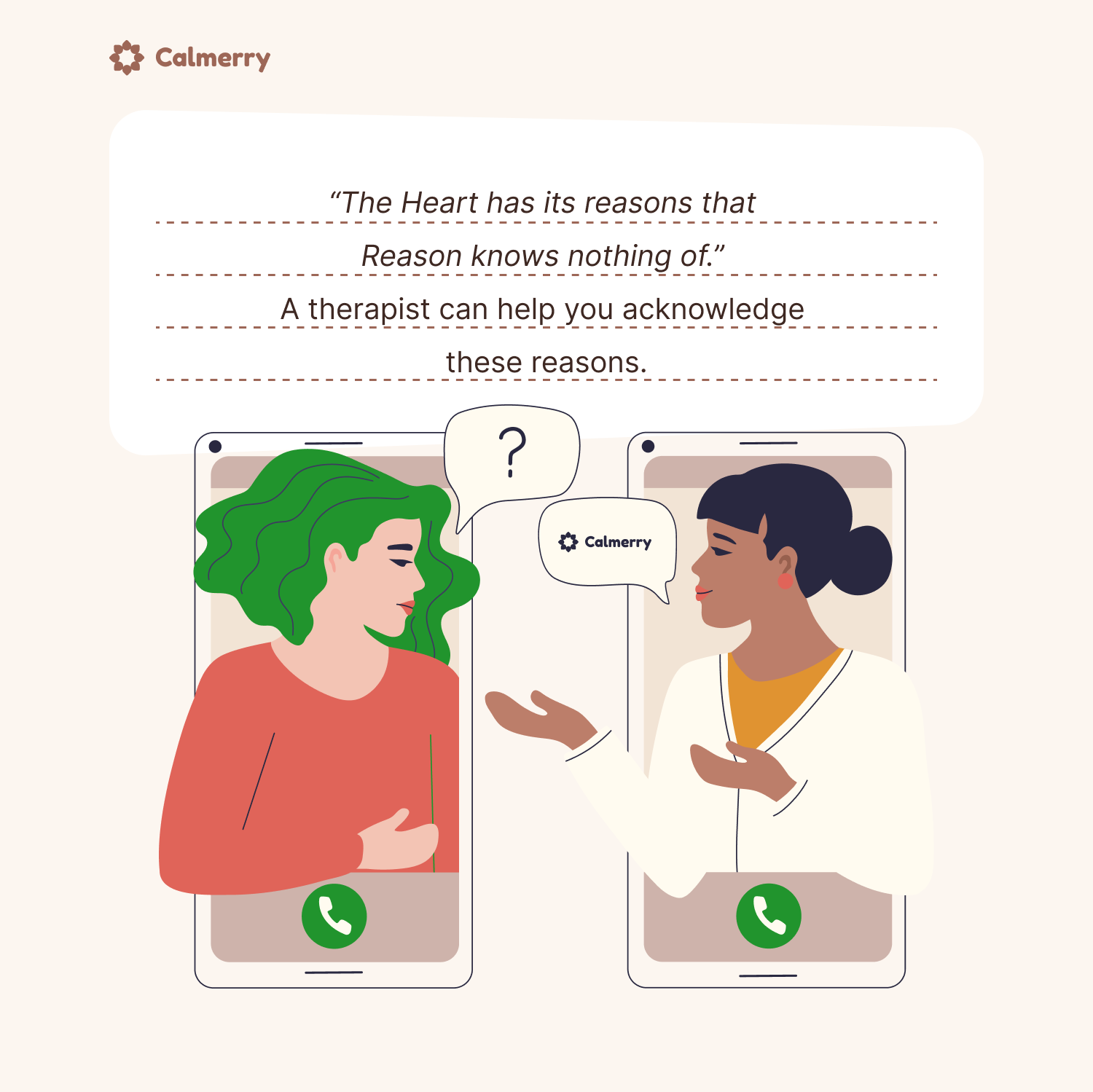
And also – “The Heart has its reasons that Reason knows nothing of.” A therapist can help you acknowledge these reasons. They can provide you with a better understanding of why you feel the way you feel and equip you with the tools to manage your emotions and lead a fulfilling life.
online therapy
live video session


